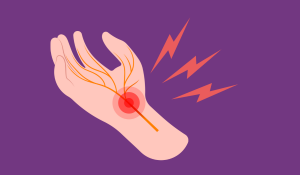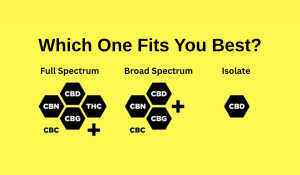Bacterial pneumonia is a lung infection characterized by buildup of fluid or another substance. It is caused by a bacterium. Symptoms include chest and back pain, cough, fever, and more. Bacterial pneumonia is almost always best treated by antibiotics. CBD is not a viable treatment for bacterial pneumonia, and could potentially be harmful.
In terms of what causes bacterial pneumonia, there are four main categories. They are as follows:
1. Hospital-acquired pneumonia is contracted in a non-intubated patient within a hospital, who has been in the hospital at least 48 hours.
2. Community-acquired pneumonia is acquired outside of a hospital setting, or in the first 48 hours of admission to a hospital.
3. Healthcare-associated pneumonia is generally acquired in long-term care centers, like nursing homes.
4. Ventilator-associated pneumonia develops in intubated patients, typically after at least 48 hours of intubation.
Various tests are frequently used to correctly diagnose bacterial pneumonia. These include the following:
• Taking a chest X-ray of a patient
• Conducting a blood test to determine a specific bacterial pathogen
• A sputum test may be administered to fluid that a patient coughs up
• A pulse oximetry reading will measure oxygen flow in the blood
• In some cases, a CT scan, or pleural fluid culture may be administered.
If bacterial pneumonia is determined to be the case, an antibiotic will usually be prescribed. In some cases, more than one type of antibiotic will need to be prescribed, to find the best match for a particular bacterium.
Other medications, like cough medicine and pain medications, may help alleviate some symptoms.
While CBD has shown efficacy as an anti-inflammatory substance, and in theory CBD for lung diseases and inflammation could have some effect on inflammation associated with pneumonia, CBD itself is not an effective treatment for pneumonia. CBD also demonstrates immuno-suppressive qualities, making its use potentially dangerous in individuals with pneumonia.
Bacterial pneumonia should be treated by a medical professional, and almost certainly is best treated by antibiotics.

Explore this cbd consumption methods tutorial and follow the step-by-step process to select, use, and verify the safest ways to consume CBD for wellness.
Read More
Learn what CBD edibles are, their main types, expected effects, legal status, safety factors, and how they compare to other forms of CBD.
Read More
Therapeutic Uses of CBD Managing Chronic Pain with CBD Struggling with chronic pain? CBD might help. Studies suggest it can reduce inflammation and alleviate discomfort,...
Read More
Just as CBD may help humans due to its interaction with the body’s endocannabinoid system, the same is true of dogs. CBD has the potential...
Read More
Cannabis has been used for millennia to treat numerous health conditions. Current research offers promising results on the effects of CBD oil on breast cancer.
Read More
What Is CBD for Cats? CBD (Cannabidiol) is a natural compound from hemp. It’s non-psychoactive, meaning your cat won’t get “high.” Instead, it works with...
Read More
1. Understanding Neuropathic Pain Neuropathic pain results from nerve damage or dysfunction, causing symptoms like burning, tingling, or sharp shooting pains. Common Causes: Symptoms Include:...
Read More
CBD for Pets: A Pet Parent’s Guide to Dosage We all want the best for our pets, especially when they’re struggling with pain, anxiety, or...
Read More
What Is Lupus? Lupus is a long-term autoimmune condition that can impact multiple organs, including the skin, heart, lungs, and kidneys. The most common type...
Read More
1. Full-Spectrum CBD: The All-In-One Option What it is: Contains CBD, minor cannabinoids, terpenes, flavonoids — and less than 0.3% THC. Why choose it: Promotes...
Read More